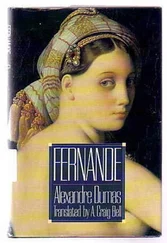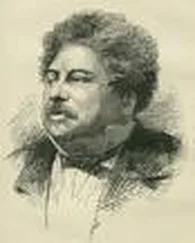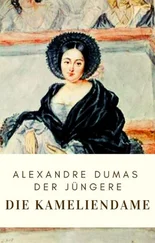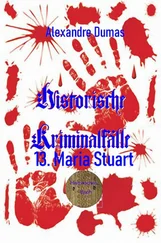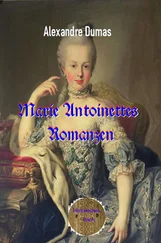Alexandre Dumas - Mary Stuart
Здесь есть возможность читать онлайн «Alexandre Dumas - Mary Stuart» — ознакомительный отрывок электронной книги совершенно бесплатно, а после прочтения отрывка купить полную версию. В некоторых случаях можно слушать аудио, скачать через торрент в формате fb2 и присутствует краткое содержание. Жанр: literature_19, foreign_antique, foreign_prose, на английском языке. Описание произведения, (предисловие) а так же отзывы посетителей доступны на портале библиотеки ЛибКат.
- Название:Mary Stuart
- Автор:
- Жанр:
- Год:неизвестен
- ISBN:нет данных
- Рейтинг книги:3 / 5. Голосов: 1
-
Избранное:Добавить в избранное
- Отзывы:
-
Ваша оценка:
- 60
- 1
- 2
- 3
- 4
- 5
Mary Stuart: краткое содержание, описание и аннотация
Предлагаем к чтению аннотацию, описание, краткое содержание или предисловие (зависит от того, что написал сам автор книги «Mary Stuart»). Если вы не нашли необходимую информацию о книге — напишите в комментариях, мы постараемся отыскать её.
Mary Stuart — читать онлайн ознакомительный отрывок
Ниже представлен текст книги, разбитый по страницам. Система сохранения места последней прочитанной страницы, позволяет с удобством читать онлайн бесплатно книгу «Mary Stuart», без необходимости каждый раз заново искать на чём Вы остановились. Поставьте закладку, и сможете в любой момент перейти на страницу, на которой закончили чтение.
Интервал:
Закладка:
The queen, on her side, appealed to her nobles, who in response hastened to rally to her, so that in a month’s time she found herself at the head of the finest army that ever a king of Scotland had raised. Darnley assumed the command of this magnificent assembly, mounted on a superb horse, arrayed in gilded armour; and accompanied by the queen, who, in a riding habit, with pistols at her saddle-bow, wished to make the campaign with him, that she might not quit his side for a moment. Both were young, both were handsome, and they left Edinburgh amidst the cheers of the people and the army.
Murray and his accomplices did not even try to stand against them, and the campaign consisted of such rapid and complex marches and counter-marches, that this rebellion is called the Run-about Raid-that is to say, the run in every sense of the word. Murray and the rebels withdrew into England, where Elizabeth, while seeming to condemn their unlucky attempt, afforded them all the assistance they needed.
Mary returned to Edinburgh delighted at the success of her two first campaigns, not suspecting that this new good fortune was the last she would have, and that there her short-lived prosperity would cease. Indeed, she soon saw that in Darnley she had given herself not a devoted and very attentive husband, as she had believed, but an imperious and brutal master, who, no longer having any motive for concealment, showed himself to her just as he was, a man of disgraceful vices, of which drunkenness and debauchery was the least. Accordingly, serious differences were not long in springing up in this royal household.
Darnley in wedding Mary had not become king, but merely the queen’s husband. To confer on him authority nearly equalling a regent’s, it was necessary that Mary should grant him what was termed the crown matrimonial – a crown Francis II had worn during his short royalty, and that Mary, after Darnley’s conduct to herself, had not the slightest intention of bestowing on him. Thus, to whatever entreaties he made, in whatever form they were wrapped, Mary merely replied with an unvaried and obstinate refusal. Darnley, amazed at this force of will in a young queen who had loved him enough to raise him to her, and not believing that she could find it in herself, sought in her entourage for some secret and influential adviser who might have inspired her with it. His suspicions fell on Rizzio.
In reality, to whatever cause Rizzio owed his power (and to even the most clear-sighted historians this point has always remained obscure), be it that he ruled as lover, be it that he advised as minister, his counsels as long as he lived were always given for the greater glory of the queen. Sprung from so low, he at least wished to show himself worthy, of having risen so high, and owing everything to Mary, he tried to repay her with devotion. Thus Darnley was not mistaken, and it was indeed Rizzio who, in despair at having helped to bring about a union which he foresaw must become so unfortunate, gave Mary the advice not to give up any of her power to one who already possessed much more than he deserved, in possessing her person.
Darnley, like all persons of both weak and violent character, disbelieved in the persistence of will in others, unless this will was sustained by an outside influence. He thought that in ridding himself of Rizzio he could not fail to gain the day, since, as he believed, he alone was opposing the grant of this great desire of his, the crown matrimonial. Consequently, as Rizzio was disliked by the nobles in proportion as his merits had raised him above them, it was easy for Darnley to organise a conspiracy, and James Douglas of Morton, chancellor of the kingdom, consented to act as chief.
This is the second time since the beginning of our narrative that we inscribe this name Douglas, so often pronounced, in Scottish history, and which at this time, extinct in the elder branch, known as the Black Douglases, was perpetuated in the younger branch, known as the Red Douglases. It was an ancient, noble, and powerful family, which, when the descent in the male line from Robert Bruce had lapsed, disputed the royal title with the first Stuart, and which since then had constantly kept alongside the throne, sometimes its support, sometimes its enemy, envying every great house, for greatness made it uneasy, but above all envious of the house of Hamilton, which, if not its equal, was at any rate after itself the next most powerful.
During the whole reign of James V, thanks to the hatred which the king bore them, the Douglases had not only lost all their influence, but had also been exiled to England. This hatred was on account of their having seized the guardianship of the young prince and kept him prisoner till he was fifteen. Then, with the help of one of his pages, James V had escaped from Falkland, and had reached Stirling, whose governor was in his interests. Scarcely was he safe in the castle than he made proclamation that any Douglas who should approach within a dozen miles of it would be prosecuted for high treason. This was not all: he obtained a decree from Parliament, declaring them guilty of felony, and condemning them to exile; they remained proscribed, then, during the king’s lifetime, and returned to Scotland only upon his death. The result was that, although they had been recalled about the throne, and though, thanks to the past influence of Murray, who, one remembers, was a Douglas on the mother’s side, they filled the most important posts there, they had not forgiven to the daughter the enmity borne them by the father.
This was why James Douglas, chancellor as he was, and consequently entrusted with the execution of the laws, put himself at the head of a conspiracy which had for its aim the violation of all laws; human and divine.
Douglas’s first idea had been to treat Rizzio as the favourites of James III had been treated at the Bridge of Lauder – that is to say, to make a show of having a trial and to hang him afterwards. But such a death did not suffice for Darnley’s vengeance; as above everything he wished to punish the queen in Rizzio’s person, he exacted that the murder should take place in her presence.
Douglas associated with himself Lord Ruthven, an idle and dissolute sybarite, who under the circumstances promised to push his devotion so far as to wear a cuirass; then, sure of this important accomplice, he busied himself with finding other agents.
However, the plot was not woven with such secrecy but that something of it transpired; and Rizzio received several warnings that he despised. Sir James Melville, among others, tried every means to make him understand the perils a stranger ran who enjoyed such absolute confidence in a wild, jealous court like that of Scotland. Rizzio received these hints as if resolved not to apply them to himself; and Sir James Melville, satisfied that he had done enough to ease his conscience, did not insist further. Then a French priest, who had a reputation as a clever astrologer, got himself admitted to Rizzio, and warned him that the stars predicted that he was in deadly peril, and that he should beware of a certain bastard above all. Rizzio replied that from the day when he had been honoured with his sovereign’s confidence, he had sacrificed in advance his life to his position; that since that time, however, he had had occasion to notice that in general the Scotch were ready to threaten but slow to act; that, as to the bastard referred to, who was doubtless the Earl of Murray, he would take care that he should never enter Scotland far enough for his sword to reach him, were it as long as from Dumfries to Edinburgh; which in other words was as much as to say that Murray should remain exiled in England for life, since Dumfries was one of the principal frontier towns.
Meanwhile the conspiracy proceeded, and Douglas and Ruthven, having collected their accomplices and taken their measures, came to Darnley to finish the compact. As the price of the bloody service they rendered the king, they exacted from him a promise to obtain the pardon of Murray and the nobles compromised with him in the affair of the “run in every sense”. Darnley granted all they asked of him, and a messenger was sent to Murray to inform him of the expedition in preparation, and to invite him to hold himself in readiness to reenter Scotland at the first notice he should receive. Then, this point settled, they made Darnley sign a paper in which he acknowledged himself the author and chief of the enterprise. The other assassins were the Earl of Morton, the Earl of Ruthven, George Douglas the bastard of Angus, Lindley, and Andrew Carew. The remainder were soldiers, simple murderers’ tools, who did not even know what was afoot. Darnley reserved it for himself to appoint the time.
Читать дальшеИнтервал:
Закладка:
Похожие книги на «Mary Stuart»
Представляем Вашему вниманию похожие книги на «Mary Stuart» списком для выбора. Мы отобрали схожую по названию и смыслу литературу в надежде предоставить читателям больше вариантов отыскать новые, интересные, ещё непрочитанные произведения.
Обсуждение, отзывы о книге «Mary Stuart» и просто собственные мнения читателей. Оставьте ваши комментарии, напишите, что Вы думаете о произведении, его смысле или главных героях. Укажите что конкретно понравилось, а что нет, и почему Вы так считаете.

